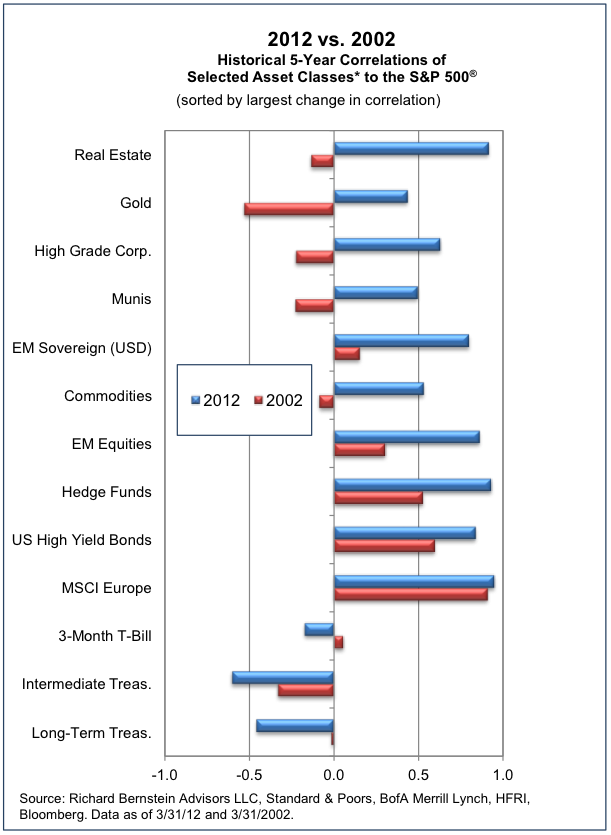5 Things You Should Know About Asset Allocation US News
Post on: 1 Апрель, 2015 No Comment

Your financial mix really matters.
When I meet with clients for the first time, one of the topics that always seem to come up is asset allocation. More often than not, the term is so shockingly misunderstood and improperly referenced that I feel clarification is in order. So let’s clear a few things up:
First, what is asset allocation? Simply put, asset allocation is used to determine an appropriate mix of various asset classes (stocks, bonds, cash, real estate, etc.) which will produce the maximum return given the level of risk an investor is willing to accept. It entails assigning a percentage weight to various asset classes and the resulting mixture is what creates a portfolio.
Asset allocation is not a financial plan. Read that twice. One of the first questions we ask new clients is to describe their current financial plan. The response is almost always a description of their current asset allocation.
A proper asset allocation is always born from a financial plan—not the other way around. Anyone who tries to propose an asset allocation outside the context of the financial plan is a fool, a salesmen, or most likely both.
Only a complete and comprehensive financial plan can determine the level of risk that investors should assume in pursuit of the goals and objectives they have set for their financial life. Assets should be mixed to match that level of risk.
Components of an asset allocation strategy. Having a one-size-fits-all asset allocation plan in place does not ensure that the mixture of assets is the correct one for your specific financial needs. Generic asset allocations produced by big Wall Street research departments are not always optimized for a given level of risk. Remember that they are a guide. Be wary of any professional that uses them exclusively.
Ensure that you are getting an optimized portfolio constructed by a professional with access to the proper planning tools, as well as the knowledge and experience to use them correctly. Additionally, ensure that all of your assets are included in the asset allocation. If you own any asset in which the price is not constant over time, it has a unique risk and return profile that needs to be incorporated into the overall allocation.
When it’s appropriate to change an asset allocation. Any changes in personal circumstance (job changes, divorce, retirement, etc.) should be reflected in an updated financial plan. Let that plan dictate if adjustments to your risk profile are required, which will drive any changes to asset allocations. But changes to an existing asset allocation, independent of changes in a financial plan (or in complete absence of a financial plan), are inappropriate. Investors who do this are usually attempting to increase (or decrease) the risk to make more (or lose less) money.
This inadvertently, and usually unknowingly, increases the risk that they will not achieve the goals that their money is to be used for in the first place.
Asset allocation is more important than choosing the hottest investment. Picking stocks inside the equity portion of an investor’s portfolio becomes inconsequential relative to selecting the correct asset allocation. I’ve seen so many investors brag, lament, second guess, and fret over the holdings in their portfolio all while missing the bigger picture.
Instead, an asset allocation is a good blueprint for finding investment ideas going forward. Advisors who sell investments for a living will always have the next great idea or the next emerging theme. Knowing which assets you need will help you choose the best investments for you, rather than Wall Street’s flavor of the month.
A good asset allocation strategy can take a while to build. When new ideas emerge, there should already be a place saved for them in your strategy—otherwise, it’s possible they could do more harm than good.
David B. Armstrong CFA, is a Managing Director and co-founder of Monument Wealth Management in Alexandria VA, a full service Private Wealth Planning and wealth management firm. Monument Wealth Management is backed by LPL Financial, the independent broker-dealer and Registered Investment Advisor. He has been named one of America’s Top 100 Financial Advisors for two straight years by Registered Rep magazine (2009 & 2010) based on asset under management. David and Monument Wealth Management can be followed on their blog at Off The Wall. their Twitter account @MonumentWealth. and on their Facebook page. Member FINRA/SIPC.
*The opinions voiced in this material are for general information only and are not intended to provide specific advice or recommendation for individual. To determine which investment is appropriate please consult your financial advisor prior to investing. All performance references is historical and is not guarantee of future results. Asset allocation does not ensure a profit or protect against a loss.
Securities and financial planning offered through LPL Financial, Member FINRA/SIPC.














